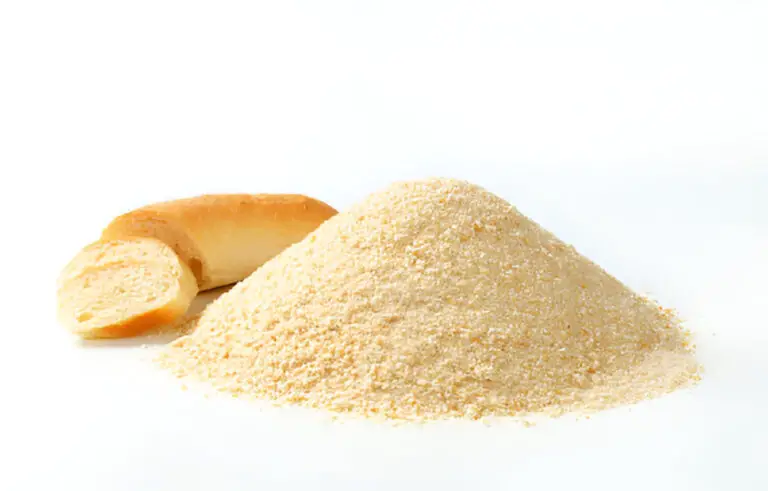Should I Chill Cookie Dough in the Fridge or Freezer? Which One Is Better?

If you’ve ever baked cookies, you know that chilling the dough is a crucial step to achieving the perfect texture and flavor. But when it comes to chilling cookie dough, there’s often confusion about whether to use the fridge or the freezer.
While both options can work, there are pros and cons to each method, and it can be challenging to know which one to choose.
In this article, we’ll explore the differences between chilling cookie dough in the fridge versus the freezer and help you decide which method is best for your next batch of cookies.
Why Need to Chill Cookie Dough?
Chilling cookie dough is a crucial step that can make a significant difference in the final product. There are several reasons why it’s essential to chill or freeze cookie dough before baking.
- First and foremost, chilling cookie dough can help control the spread of the cookie during baking. The cooler dough takes longer to melt and spread, resulting in a thicker, denser cookie. This can result in a chewier, softer texture that many people prefer.
- Chilling cookie dough allows the ingredients to meld and interact more fully. As the dough chills, the moisture in the dough is distributed more evenly, allowing the flavors to blend and develop. This can result in a richer, more complex flavor profile and an improved texture.
- Chilling cookie dough can prevent the cookies from burning or becoming overdone. By starting with a colder dough, the cookies have a longer baking time to cook through without over-browning on the bottom or edges. This results in a more evenly baked cookie with a more consistent texture.
- Chilling cookie dough is that it can help firm up the dough, making it easier to work with and shape into uniform balls or discs. This can be especially helpful when making cut-out cookies or when working with a particularly sticky dough.
It’s important to note that not all cookie dough needs to be chilled. Some cookie types, such as shortbread, are best baked from room temperature dough. However, for most cookie recipes, chilling the dough is recommended.
Chilling Cookie Dough in the Fridge
Chilling cookie dough in the fridge is a common method used by many bakers. This involves placing the dough in an airtight container or wrapping it in plastic wrap and placing it in the fridge for several hours or overnight. Here are some of the benefits and drawbacks of chilling cookie dough in the fridge:
Benefits
- Texture: Chilling cookie dough in the fridge allows the fats to cool, which results in cookies that are thicker and chewier. The cooler temperature of the dough means that it takes longer to heat up in the oven, so the outside has more time to set before the inside has a chance to spread out. This means that the cookies will be more evenly baked, with a texture that is soft and chewy, rather than crispy and flat.
- Flavor: Chilling cookie dough in the fridge allows the ingredients to fully combine and develop a richer and more complex flavor. This means that the cookies will have a more intense flavor and be more enjoyable to eat.
- Convenience: Chilling cookie dough in the fridge is a convenient method that allows you to make the dough ahead of time and bake it when you’re ready. This is particularly useful if you’re short on time or want to have fresh cookies without spending a lot of time in the kitchen.
Drawbacks
- Time-consuming: How long is chilling cookie dough in the fridge? It can take several hours or overnight, which can be time-consuming if you’re in a rush or need to bake the cookies quickly.
- Limited space: If you have a small fridge or limited space, it may be challenging to find enough room to chill the cookie dough along with other items.
- Potential for drying out: If the dough is not wrapped properly, it may dry out in the fridge, resulting in a less desirable texture and flavor.
Chilling Cookie Dough in the Freezer
Chilling cookie dough in the freezer is another method used by bakers, particularly if they need to store the dough for an extended period. This involves placing the dough in an airtight container or wrapping it in plastic wrap and placing it in the freezer for several hours or up to several months. Here are some of the benefits and drawbacks of chilling cookie dough in the freezer:
Benefits
- Long-term storage: Chilling cookie dough in the freezer allows you to store the dough for an extended period, which can be useful if you want to make large batches of cookies and bake them at a later date.
- Quick chilling: Chilling cookie dough in the freezer can be quicker than chillin it in the fridge, which can be useful if you’re short on time or need to bake the cookies quickly.
- Space-saving: If you have limited fridge space, chilling cookie dough in the freezer is a great option as it frees up space in the fridge.
Drawbacks
- Texture: Chilling cookie dough in the freezer can affect the texture of the cookies, making them harder and less chewy.
- Flavor: Freezing cookie dough can cause the ingredients to separate, resulting in a less complex flavor.
- Potential for freezer burn: If the dough is not wrapped properly, it may suffer from freezer burn, resulting in an unpleasant taste and texture.
So, Which One Is Better
While both methods of chilling cookie dough have their benefits and drawbacks, the decision of which one to use ultimately depends on your preferences and needs.
If you have plenty of time and want to achieve a soft, chewy texture and rich flavor, chilling the dough in the fridge is a great option. On the other hand, if you’re short on time and need to store the dough for an extended period, freezing the dough is a better choice.
It’s important to note that regardless of which method you choose, there are some best practices to follow to ensure that your cookie dough is properly chilled:
- Wrap the dough tightly in plastic wrap or place it in an airtight container to prevent air and moisture from getting in.
- Label the container with the date you made the dough and the type of cookie dough to keep track of what you have stored in the fridge or freezer.
- Let the dough come to room temperature before baking to ensure that it bakes evenly.
- Follow the recipe instructions carefully to ensure that you get the best possible results.
Effects of Over-chilling or Under-chilling of Cookie Dough
When it comes to chilling cookie dough, there is a fine balance between under-chilling and over-chilling. Both can have negative effects on the final product, so it’s essential to find the sweet spot.
Under-chilling cookie dough can result in it spreading during baking. If the dough is too warm, it will melt quickly, causing the cookie to spread out and become thin and crispy. This can be especially problematic for delicate or intricate cookies, such as those with cut-out shapes or designs.
On the other hand, over-chilling cookie dough can result in a dense, hard cookie. If the dough is too cold, it will take longer to bake and may not spread enough. This can result in a cookie that is hard and crumbly, rather than soft and chewy.
Over-chilled cookie dough can also be challenging to work with, as it can become hard and difficult to shape or roll. This can be especially problematic for recipes that require the dough to be rolled out and cut into shapes, such as sugar cookies or gingerbread.
Another potential issue with over-chilling cookie dough is that it can affect the overall texture and flavor of the cookie. As the dough gets colder, it can inhibit flavor development and result in a less flavorful cookie. It can also cause the cookie to become overly dry, crumbly, or tough.
So, what’s the optimal chilling time for cookie dough? It depends on the recipe and the temperature of your fridge or freezer. In general, most cookie dough can be chilled for 30 minutes to an hour in the fridge or for 15-20 minutes in the freezer.
Conclusion
In conclusion, chilling cookie dough in the fridge or freezer has its benefits and drawbacks. Chilling cookie dough in the fridge allows for a soft, chewy texture and a rich flavor, while freezing cookie dough is more convenient for long-term storage and quick chilling.
The decision about which method to use depends on your needs and preferences. Regardless of which method you choose, following best practices for chilling cookie dough will help ensure that your cookies turn out delicious and perfect every time.






